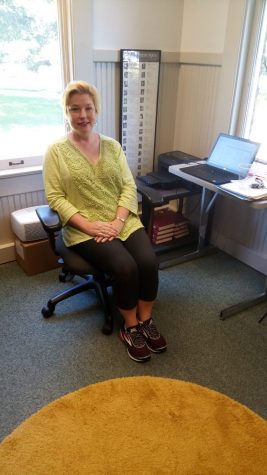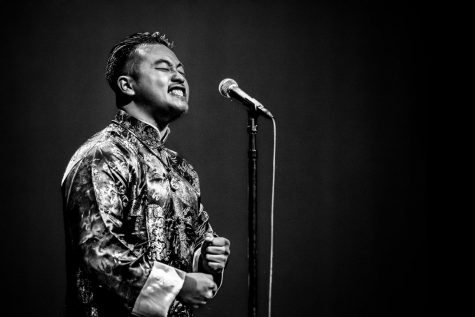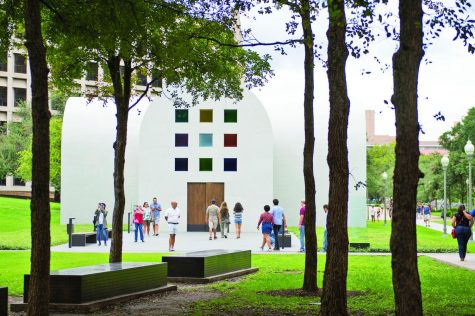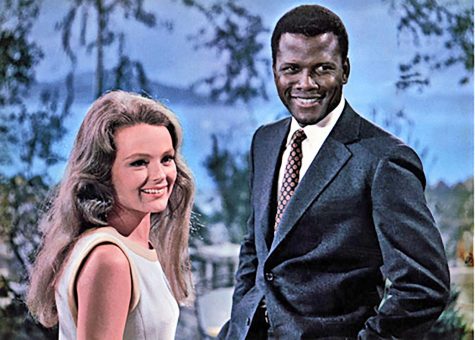Students share research, artistic works at this year’s SOURCE
Research is generally an endeavor for academics. Recently, students got their turn.
The 10th annual Symposium On Undergraduate Research and Creative Expression, or SOURCE, was held April 15.
SOURCE provides an opportunity for students to present their research or artistic works through presentations or poster sessions in a conference environment.
The presentations covered a wide range of subjects from “Lessons for the Zombie Apocalypse: Living in a World Defined by Loss” by senior Gloria Adams-Hanley to “Cost-Benefit Analysis of Sustainable Urban Planning in Terms of Public Health Care Costs” by junior Kadence Hampton. Students were hand picked by the faculty committee to participate based on their formal abstracts summarizing their research, ensuring that every presentation had a unique and interesting topic.
Students were able to present their research through an extemporaneous presentation of their topic. Sophomore Idan Englander, mentored by Humanities Professor Richard Bautch, presented his research of his grandmother’s book Retorno a la Vida (Return to Life).
“I saw the SOURCE as an invaluable opportunity to share my grandmother’s personal experience through the Holocaust in order to educate students on something they may have never been exposed to,” Englander said.
The symposium also focused on students’ creative expression. Junior Ellie Douglass, mentored by Carrie Fountain, presented a very personal collection of poems. Douglass discussed the idea that loss is a universal experience through examining the effects of her father’s recent death on herself and her family members.
“I think poetry is a limited area of SOURCE, but it’s growing,” Douglass said. “I think it’s a good opportunity for poets because it’s always good to find new places to read and practice your reading in a more formal setting.”
“Reading these poems that were very personal to me was a big personal obstacle, and I was really happy with how it went…I think the point of writing the collection, aside from just being able to express the things that I felt about my dad dying, was to have other people connect to the experience,” she said.
Another section of SOURCE was the Poster Session, where students could present their research and artistic work on a poster board. Senior Andrew Young, mentored by Communication Professor Teresita Garza, presented his poster titled “Rasquache: Art for the Proletariat.”
“Source was great because I got to show people my art form of Rasquache that many people didn’t know about, and I was able to inform a lot of people on the subject,” Young said.
“It’s really neat,” said David Thompson, administrative coordinator for University Programs, who has worked with SOURCE over the past 10 years. “The students who present are incredible and the audience also asks some really good questions.”
SOURCE is intended to present the opportunity for students to not only hold scholarly discussions on new ideas, and also to celebrate students’ accomplishments in the research field.





